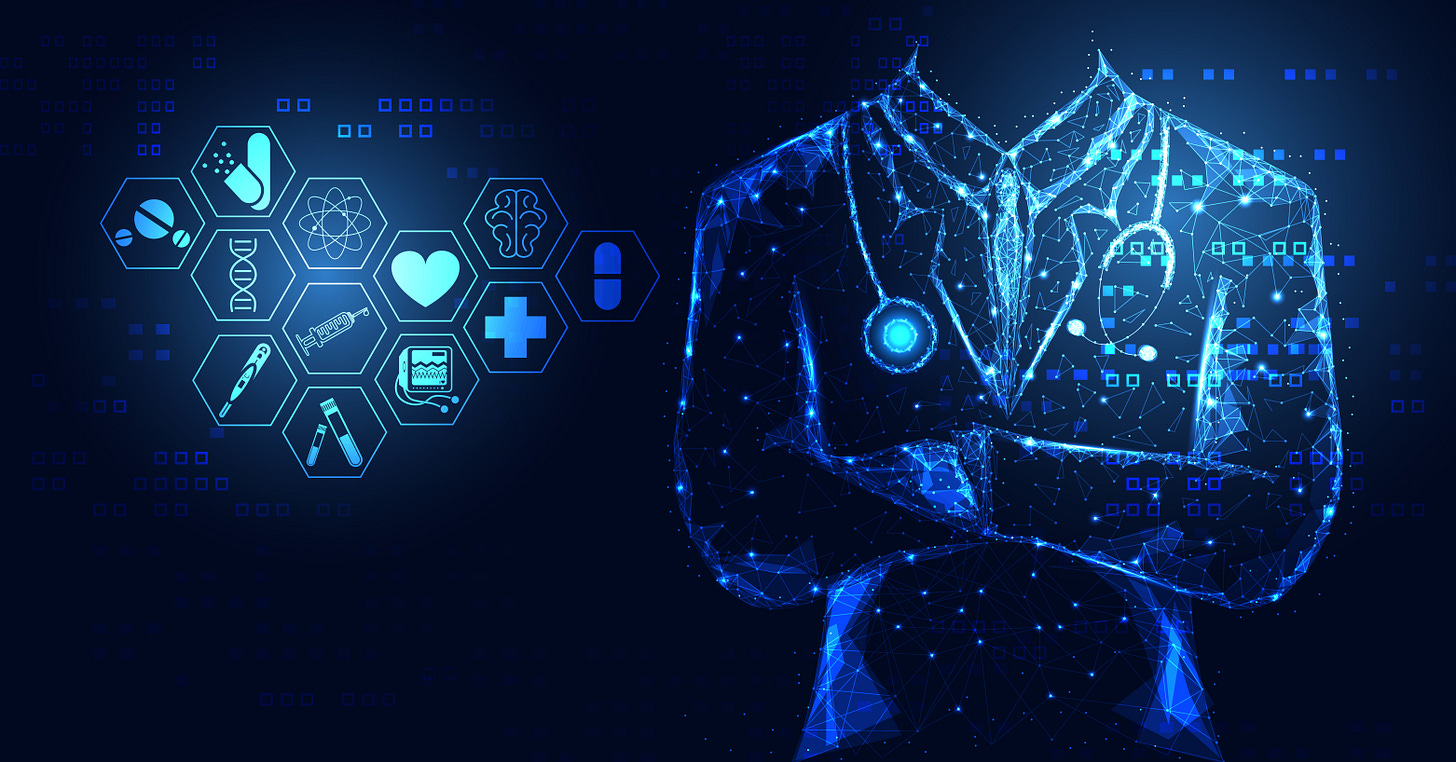China Debuts World's First AI Agent Hospital That Treats Thousands Of Patients Virtually In Future Of Healthcare
“Imagine thousands of fully automated hospitals that will save millions of lives. This future is fast approaching,” Global Times added.
China is providing a glimpse into the future of healthcare after the country debuted earlier this month a revolutionary hospital run by artificial intelligence agents to treat patients virtually, indicating a lesser need for doctors and nurses in the future.
The concept was first explored in a medical research published in May of last year by researchers from Tsinghua University. Chinese paper Global Times reported that these AI doctors and nurses at the Agent Hospital work via large language model (LLM)-powered intelligent agents with the ability to autonomously communicate.
The autonomous system mimics a complete, closed-loop process for each stage of medical care including pre-hospital procedures, triage, registration, consultation, examination, diagnosis, prescription, rehabilitation, and follow-up, according to Daily Galaxy.
Global Times added:
Remarkably, AI doctors can treat 10,000 patients in just a few days. It would take human doctors at least two years to treat that many patients. Furthermore, evolved doctor agents achieved an impressive 93.06 percent accuracy rate on the MedQA dataset (US Medical Licensing Exam questions) covering major respiratory diseases. They simulate the entire process of diagnosing and treating patients, including consultation, examination, diagnosis, treatment and follow-up.
If the patients in the town are real and the doctors are virtual, online telemedicine services can be provided to patients. The AI hospital town utilizes a vast repository of authoritative medical knowledge, allowing AI doctors to handle thousands, even millions, of cases.
The potential for high-quality, affordable and convenient healthcare services for the public is on the horizon, as the diagnostic capabilities of AI doctors evolve from the virtual world to the real world, [explained Liu Yang, executive dean of Institute for AI Industry Research (AIR) and associate dean of the Department of Computer Science and Technology at Tsinghua University].
“Imagine thousands of fully automated hospitals that will save millions of lives. This future is fast approaching,” Global Times added.
The Chinese outlet, however, remarked: “one thing is certain - AI can never replace humans.”
However, China Daily says the AI doctors can diagnose patients better and faster than real doctors and nurses, highlighting that this will not replace doctors but ease the country’s overwhelmed healthcare system.
Liu Yang added:
"We are building AI assistants to reduce doctors' administrative burden. We want our product to help every patient - especially in remote areas - to have instant access to quality care through their smartphones."
"Our work sets a new benchmark not just for the West, but also for the Global South," he said. "By showing how AI can amplify limited medical resources, we hope to contribute to equitable healthcare innovation worldwide."
While the West is not quite in this position just yet, there are still attempts to get there soon. For example, in January, Congressman David Schweikert (R-AZ) introduced legislation that AI to take the place of doctors and administer treatment and provide prescriptions.
AUTHOR COMMENTARY
‘This won’t replace jobs’ - yet…
As wild as it is, this is the future of healthcare. Doctors and nurses will be replaced with AI algorithms that already know what ails you because all of your medical records will have been fed to the machine, and the machine will then spit out the programmed slop advice it only knows what to regurgitate. Sure, perhaps initial analysis might do a better job at diagnosing and treating a patient in some cases, but what happens when these AI agents inevitably hallucinate and give the wrong advice?
Job 13:4 But ye are forgers of lies, ye are all physicians of no value.
Do what you can to treat and heal yourself, and get in the best physical condition that you possibly can, because the days of seeking genuine medical aid are fleeting fast…
[7] Who goeth a warfare any time at his own charges? who planteth a vineyard, and eateth not of the fruit thereof? or who feedeth a flock, and eateth not of the milk of the flock? [8] Say I these things as a man? or saith not the law the same also? [9] For it is written in the law of Moses, Thou shalt not muzzle the mouth of the ox that treadeth out the corn. Doth God take care for oxen? [10] Or saith he it altogether for our sakes? For our sakes, no doubt, this is written: that he that ploweth should plow in hope; and that he that thresheth in hope should be partaker of his hope. (1 Corinthians 9:7-10).
The WinePress needs your support! If God has laid it on your heart to want to contribute, please prayerfully consider donating to this ministry. If you cannot gift a monetary donation, then please donate your fervent prayers to keep this ministry going! Thank you and may God bless you.








Let me see . . . Virtual doctor visits . . . Jabbies . . . Compromised (if not destroyed) immune systems . . . Death by 💉 . . . (basically). Enter AI Doctors and Nurses. Won't matter much, now will it? Why? Because . . . allopathic doesn't seek true solutions, doesn't spend sufficient time with you, or care enough to find out anything. So . . . if you took the jabbie, you best get your final wishes and affairs in order because your clock is ticking and your time is surely short. Plus, allopathic will do nothing for you other than to facilitate your death. In the event you make it through that hoop, AI Doctors and Nurses will see to it, you're polished off. Medical Industrial Complex mission complete.
Like Jacob said, "Do what you can to treat and heal yourself, and get in the best physical condition that you possibly can, because the days of seeking genuine medical aid are fleeting fast…"<----Truth and Wisdom. Take heed.
Not surprised as doctors just follow orders. Something a machine could do so, expect the same amount of errors and deaths. 400,000 for the former ond 200,000 for the latter.